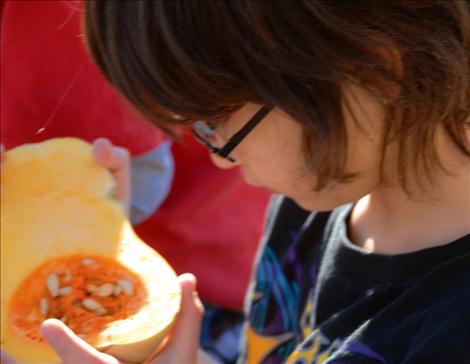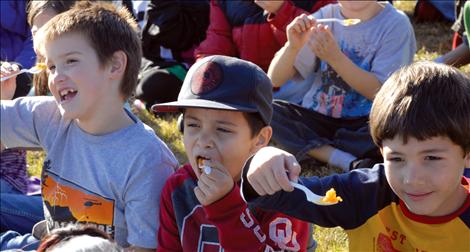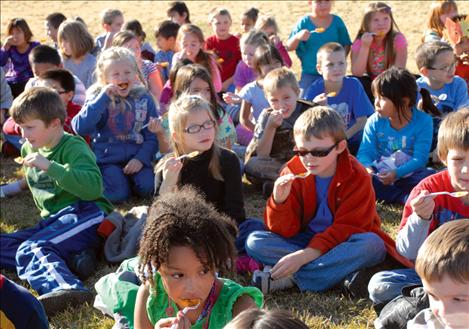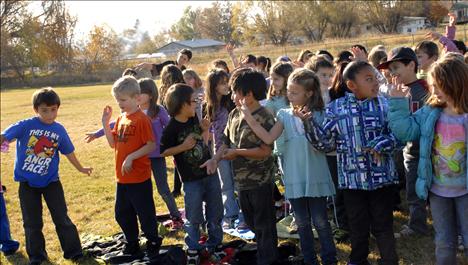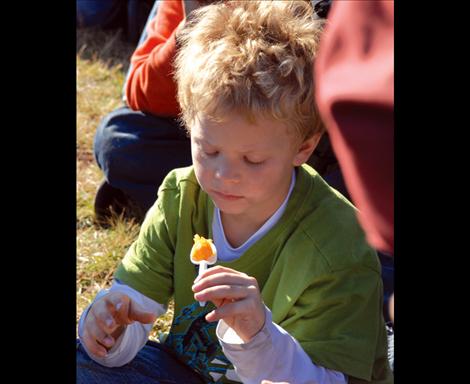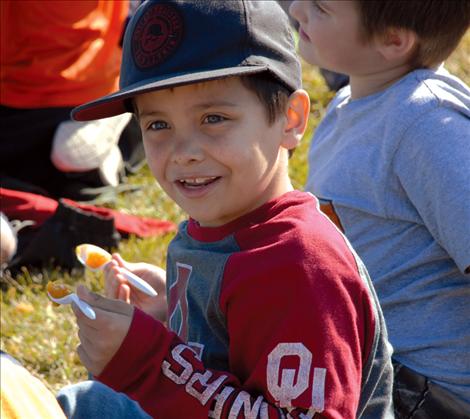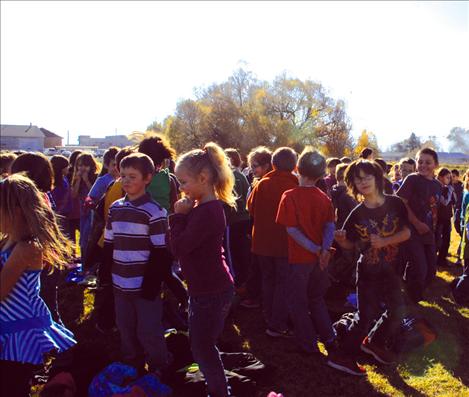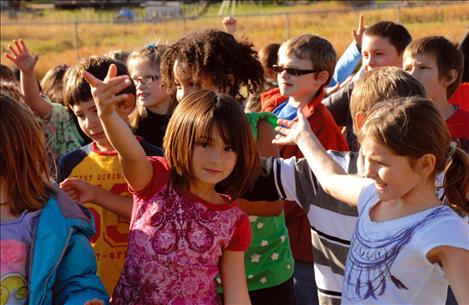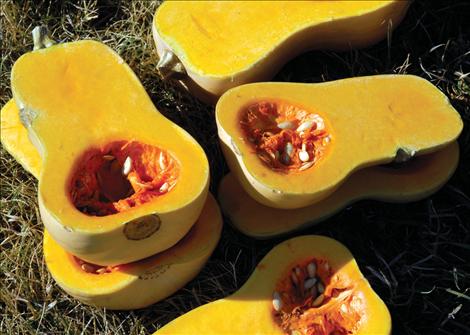Farm to School program provides local fruits, veggies for schoolchildren
Hey savvy news reader! Thanks for choosing local.
You are now reading
1 of 3 free articles.
RONAN — Before they tasted the sunny golden vegetable, Ronan second graders planted “pretend” squash seeds and then pushed their arms towards the sky, imitating squash tendrils and vines as they sprouted in fields around the Mission Valley. On the playground at K. William Harvey Elementary School, the kids also mimed harvesting, scooping out the seeds and gooshy innards and putting the sunny golden vegetable in the oven.
Polson kids also got a chance to sample locally grown butternut squash baked with brown sugar and butter the week of Oct. 28 to Nov. 1 as part of the Farm to School Program.
“The Farm to School program helps us to coordinate better with local crops and growers,” said Laura Ginsburg, Farm to School director.
The goal of Farm to School initiatives statewide is to boost nutrition education and provide access to healthy food in elementary schools, middle schools and high schools.
While it’s a fact that some kids don’t like squash, due to it’s funny name, smooth texture or warty-looking exterior, children are encouraged to at least try, (taste) the vegetable.
Nicki Jimenez, Food Corps worker at Lake County Community Development Center, stressed the importance of trying new vegetables and fruits.
“Trying is the most important thing,” she said.
Jimenez told Ronan second-graders it’s okay not to like something, but to just say, “I don’t care for that” in your haughtiest queen or king voice — very politely.
Second-grader Landon Bishop said, “I don’t much care for (squash.) It tastes good, but it’s too soggy.”
A classmate said it was “yummy in her tummy.”
During the fall, kindergarten through 6th grade students received a fresh fruit or vegetable snack every week that included carrots, cucumbers, apples, pears, beets, cabbage and squash, all raised in the Mission Valley or surrounding areas, and some imports such as grapes and pineapple.
Farm to School is all about building relationships between the schools and the growers and increasing kids’ access to healthy fresh food, Jimenez said. She works primaily on access and education with the kids, to connect them “to real food and help them grow up healthy.”
With the same goals, J.B. Capdeville works in the Polson schools. She packs the fruit and vegetable snacks in a family style bag that includes napkins, gloves, forks and an information sheet in a packet for each classroom.
Since many children have never tried some of the foods, Capdeville said teachers emphasize tasting each vegetable or fruit.
Usually the vegetables and fruit are raw since the program allows only one cooked product per week.
Local foods are processed through the Mission Mountain Food Processing Center. For instance, the butternut squash arrived at the schools in bite-sized chunks and the carrots came sliced into “coins.”
The Montana Team Nutrition and Office of Public Instruction Child Nutrition programs fund Montana’s Farm to School programs.
The Montana Team Nutrition program was recently awarded a $294,403 competitive grant from the U.S. Department of Agriculture.
The latest grant, which was applied for and awarded through Montana’s Office of Public Instruction, will be used in a variety of ways, including support for nutrition education and Farm to School initiatives.
“It’s very important to help kids develop healthy eating habits,” Bark said. “This grant money will be used to help kids learn how to eat right for the long term, and it’s also designed to make it easier for kids to access healthy foods.”















